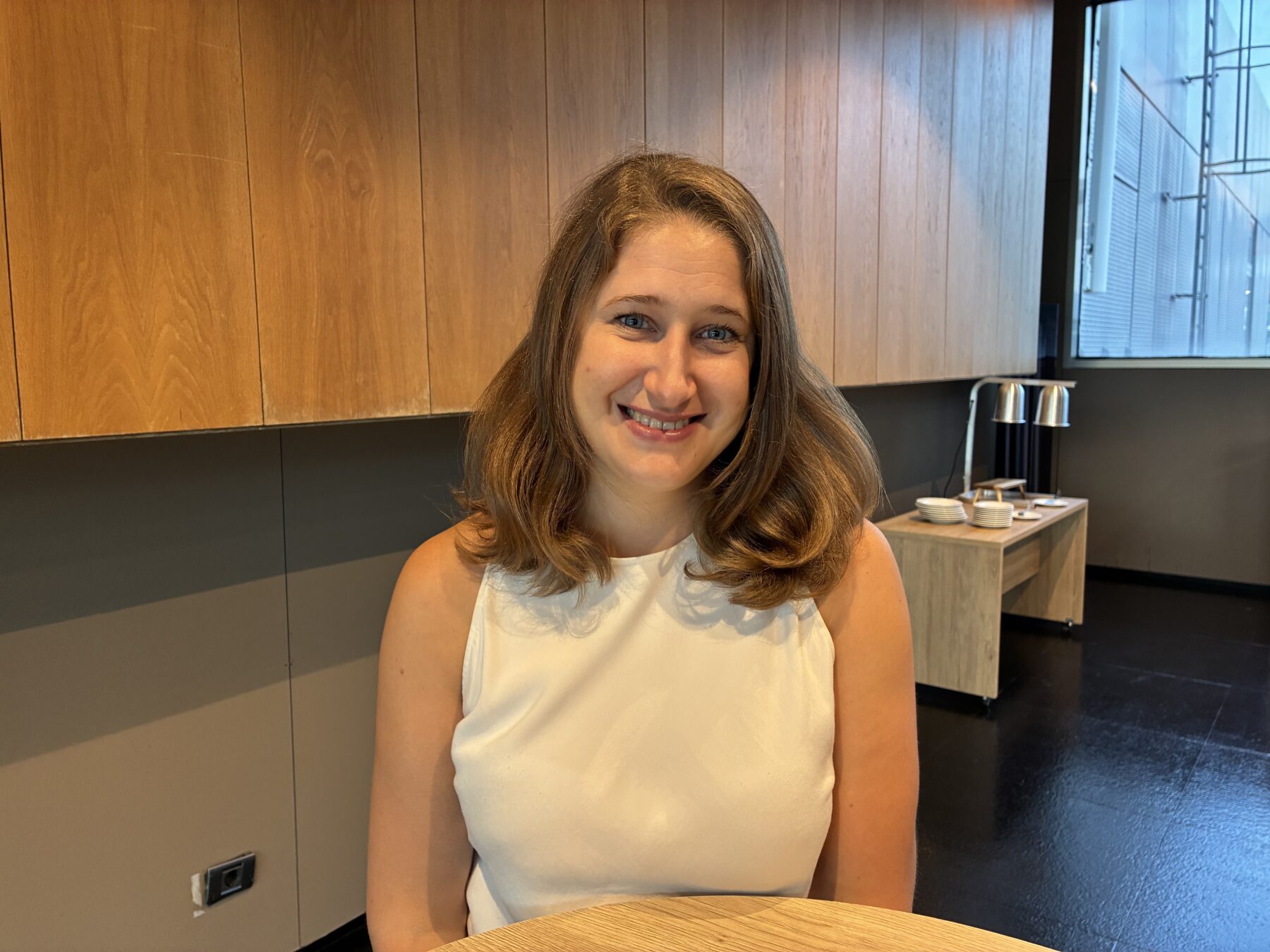Czech MS patient helps shape healthcare policies, design of trials
Ministry of Health employee aims to make a difference in patient lives
Written by |

Jana Hlavacova is pictured at ECTRIMS 2025 in Barcelona, Spain. (By Agata Boxe)
As a law student in the Czech Republic, Jana Hlavacova specialized in international law and international relations, but a multiple sclerosis (MS) diagnosis led her to shift her professional focus.
Applying her legal expertise to her work at the Czechia Ministry of Health, she now helps shape healthcare policy and the design of clinical trials, aligning them with patient needs.
Hlavacova, who is 38 and lives in Prague, says she really wanted to work in the public sector so she could make a meaningful difference in patients’ lives.
She also volunteers with the European Multiple Sclerosis Platform, an umbrella group for national MS organizations in Europe, which she represented at the 2025 European Committee for Treatment and Research in Multiple Sclerosis (ECTRIMS) conference in Barcelona, Spain.
The road to an MS diagnosis and patient advocacy
Hlavacova was diagnosed with MS in 2012, when she was 24 and a university student.
She first experienced pins and needles in one arm, which gradually went away. Then, about two years later, she began feeling pins and needles in her fingers and toes. The sensation spread from the neck down throughout her entire body.
Initially, Hlavacova ignored her symptoms. She was studying abroad in the U.K. and was a self-described workaholic.
But over time, she lost the sensation of touch and had problems with dexterity: She couldn’t write or brush her hair. Surges of electricity ran through her body whenever she bowed her head. And she started seeing small spots. Her body felt like it was in a vest being pulled tighter.
She was terrified.
Hlavacova returned home for a diagnosis and treatment.
These days, she applies her experience as an MS patient to her job at the Ministry of Health.
Working for the director general for legislation and law, she is involved in crafting health policy, including the design of clinical trials.
When I started there, it was because patient organizations — and through them, the patients — didn’t have a voice in the decision making. … I felt that that was the place to be, to really make a difference.
One of her main contributions has been amplifying the patient perspective in legislative decision-making. As one example, the ministry has made efforts to involve patients in designing clinical trials.
“When I started there, it was because patient organizations — and through them, the patients — didn’t have a voice in the decision making,” Hlavacova says, “and I felt that that was the place to be, to really make a difference.”
She says she always tries to see health policy through the patient’s eye, and look at how it can support the needs of people living with conditions like MS.
Workplace accommodations have been key to her success
A key factor that has supported Hlavacova has been workplace accommodations. She has come to appreciate the value of workplace accommodations, which are currently helping her thrive.
Hlavacova says her employer has been very understanding and inclusive regarding her MS needs and symptoms. For example, she is allowed to work flexible hours. She can also work remotely once a week and when she is not feeling well. Such adjustments are even more essential considering that Hlavacova also has asthma and gets sick quite often.
“If I can work from home, this means the world to me,” she says. “Because then I’m able to perform.”
The accommodations from her employer are in stark contrast to a more challenging time in her career. In a past office job, she took naps on the bathroom floor of her workplace to manage extreme MS fatigue.
“Now I know that there is a sofa I can use, and it’s fine, and it’s OK,” she says.
The balancing act: Not overcommitting at work or in life
Meanwhile, Hlavacova tries to balance her staunch commitment to civil service with engaging in self-care and cultivating social connections.
She tries her best not to overcommit, in either her personal or professional life.
“I know that if I overdo it, if I don’t listen to my body, there will be consequences,” she says.
Hlavacova enjoys exercise and sports, including running, yoga, rock climbing, canoeing, and hiking. She also cherishes the company of her family and friends.
“I’m very socially active, and I’m a fortunate person,” she says.
The time spent nurturing her well-being and those invaluable connections provides fuel for continuing her work — a defining aspect of her identity.
“I’m a civil servant,” Hlavacova says. “I really take it as a service. I serve people, the country, Europe, the world.”







